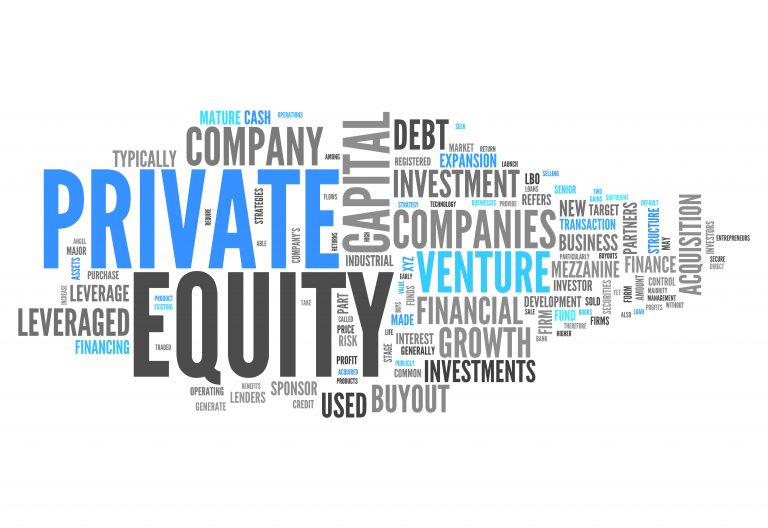One of the cover topics of the May issue of the Ekonomi Dünya Journal was “Gender Diversity in the Investing World”. You can reach the full article and the magazine from the news detail below.
—
Gender Diversity in the Investing World
Ekonomi Dünya Journal – May 2022
Barış Öney
The issue of gender diversity is becoming a very important issue in business circles all over the world, and the investment world has started to intensify with this agenda. Of course, the investment world’s involvement in this issue has the power to deeply affect the way of doing business as a party that touches all sectors.
Investment World Actors…
Let’s start by briefly reminding the actors of the investment world. The investment world mainly consists of fund holders with high purchasing power such as; institutional investors, family offices, pension funds, insurance company funds, university foundations, etc. Additionlly, large investment and development banks are also included in this category and are also referred to as DFIs in the literature. Today, DFIs are the most critical investors in emerging markets, especially in Turkey, and they constitute the basic funds of almost all private equity and venture capital funds investing in these markets. They also provide almost all long-term project finance loans.
Fund owners make their investments through fund management companies. While some of their funds are invested through fund management companies that invest in stocks or fixed-income instruments in the stock markets, some of them are invested in private equity funds, venture capital funds, private debt funds, etc. evaluate their vehicles. Private equity, venture capital, private debt fund owners are called limited partners (Limited Partners and LP for short) in the literature. These alternative mutual fund management companies are also called general partners (General Partner and GP for short) in the literature.
Organizations that complete this value chain are investment banks, M&A consultancy companies, brokerage houses, portfolio management companies, etc. As money flows from fund owners to companies seeking funds, these institutions mediate this flow. They are indispensable actors of this world and they perform a very important task.
Amount of Money Invested…
Roughly, the fund management companies in the world today are:
- the assets they manage are worth more than $75 trillion;
- $3 trillion of this is managed by private equity and venture capital fund management companies.;
- 800 billion dollars of this amount goes to emerging markets, 80% of which has been taken by China so far.
In the post-pandemic world, there is almost 100 trillion dollars more that can be invested, especially as a result of the printing of money by the USA and European countries. However, it is a big question mark where such a high amount will be invested.
Stunning Technological Developments Despite the Turbulence in the World…
The world is going through a chaotic process that started with the pandemic, continues with wars and where the economic balances are very difficult. Climate problems are known, alarm bells are ringing now. In light of all these situations, it will take a long time until a new balance is established.
But on the other hand, there are such developments in the field of technology that one’s head is spinning in this rapidly developing technology world. Of course, investors too. I liken this to the period between 1880 and the great depression of 1929, when the invention of the light bulb and electricity increasingly entered our world commercially, when there were major disasters such as regional wars, World War I and the Spanish flu. Although there were great chaos in this period, there were also great inventions and developments in the field of technology, and thanks to the opportunities created by electricity instead of the traditional works of the pre-electric world, great fortunes were acquired.
We are going through a similar period today. While it has become very difficult to achieve high returns in traditional jobs, it has become easier on the technological side. Fund returns for investments other than technology and digitalization, for example, are 2-3 times in 5 years, while in technology investments, this can be almost 10 times, even 100 times, 1000 times and above in the same period. For this reason, while private equity investors tend to make more technology investments and work with venture capital investors, venture capital investors are also starting to act together with private equity investors with the desire to invest in traditional companies that make a move towards digitalization.
However, the said investors began to see and understand that the gaps in the income distribution in the world would gradually increase and that it would not be beneficial for them and the world to make these gains with the logic of whatever the cost while evaluating their money. In this context, investors and especially the world of private capital and venture capital have increasingly adopted the sustainability principles of the United Nations in recent years and have started to make their investments within this framework.
First, they took steps to invest in businesses that will have a positive impact in the fields of environment-social-governance called ESG. Then they started investing from the perspective of Gender Diversity (Principle No. 5 Gender Equality) and started to make impact investments. In other words, they began to pay attention to gender diversity or to refrain from investing in companies that do not take progressive steps in this direction.
In summary, for the last 3 years, money has started to flow to companies that are environmentally friendly, create social impact, well-managed and care about gender diversity. “Green” and “technology” have become indispensable prerequisites for investments. Today, hot investment agenda topics in technology are artificial intelligence, robotization, electric autonomous vehicles, metaverse, data analytics, cyber security, gaming, e-commerce, renewable energy, etc.
Why Gender Diversity?
I have made a long introduction as we think that it is important to understand the subject well from a holistic point of view. But now let’s focus on gender diversity. There have been significant developments in this field, especially in the last 3 years. First of all, the world of investment and finance is male-dominated both in the West and in emerging markets. While the number of women in the Banking and Finance sector in the USA is 30%, it falls below 10% in the investment world and predominantly private equity and venture capital world. In emerging markets, if we exclude China, this rate drops to 6%.
If we look at the private equity fund management companies in Turkey, we see that one or two of them have 2-3 female employees, while the rest are always male managers and employees.
This is the current situation. However, there have been interesting developments recently.
IFC, the Financial institution of the World Bank, conducted a very comprehensive research on Funds and Portfolio Companies in 2019. In this research, which covers 6,000 Funds and 5,000 portfolio companies, the performance data of 700 fund and 500 portfolio companies were evaluated. In addition, interviews were conducted with over 500 fund managers, institutional investors, and over 50 academics and managers. Very important findings emerged in this study. Namely:
First of all, male dominance in the sector is over 90%. On the other hand, only 10% of senior executives working in private equity fund investment companies and portfolio companies around the world are women.
However, on the contrary,
- Gender Balanced Teams – Investments in companies led by Gender Balanced Teams yielded 20% more returns to their investors than investments in companies without it.
- Again, companies of the balanced gender took the lead with 25% more value increase.
- Women-dominated investors invested twice as much in women-dominated companies.
I mentioned that the assets under management in the world are worth more than $75 trillion. This means that if “balanced gender” is achieved, these figures will increase by at least 20%, which corresponds to a figure of 15 trillion dollars on a world scale. It is clear that this will have a tremendously positive effect in the end.
In addition, while there is liquid money to go to investments of 100 trillion dollars in the world, the fact that this money will go to companies with gender diversity, which will generate more returns, has shown that it will have a very positive effect in this respect.
As such, a slow awakening began all over the world. Gender-balanced fundraising, which was $1.1 billion in 2017 on the private equity and venture capital funds side, increased to $4.9 billion in 2019. Fund management companies, namely GPs, which have a higher ratio of female managers and employees, have become more advantageous as they seek to manage the funds of investors, namely LPs. In other words, the fund owners called LP started to put pressure on the managers, called GP, whose funds they manage. In addition, they expected GPs to pay attention to the high rate of women not only in their own companies, but also in the companies they invested in while evaluating these funds.
However, its implementation at the GP level is still slow. For example, only 7% of these funds are still directed to companies with female founders. More guidance and encouragement is needed in this regard, both on the fund side and on the companies in which the funds invest.
Meanwhile, there is a situation that can be considered as a positive development. $26 trillion of fund management companies investing in the world’s stock markets, that is, 1/3 of all managed assets, are directed to impact investments, and gender diversity is also included in the scope of impact investments. They make this a policy as “Gender-Smart Investing”, that is, “Gender-Smart Investment”. If this issue is not taken into consideration, it is thought that economic growth and sustainable development will be adversely affected.
Currently, 40% of the world lives in a place where gender diversity is not considered important. There is a long way to go here, but great strides are being made at the same time.
As a result of all these positive developments, as of 2021, many funds have started to regulate their policies in order to give importance to this both within themselves and before portfolio companies. Some more, some slower, but they all started to care about it.
For example:
As a result of EY’s research with 127 fund managers in 2021, 70% of them stated that they are developing gender diversity policies and establishing company and investment rules in this regard.
With Morgan Stanley’s 2022 survey revealing that 1 million of women in the US workforce have been forced out of their jobs since the start of 2020, a positive movement has also begun. It is clearly seen that 65% of investors with high purchasing power investing in the US stock markets are now making these investments with a gender diversity lens when investing.
In fact, according to the regulation enacted by the US capital markets board SEC in August 2021, the boards of directors and senior executives of companies traded on the Nasdaq are now required to show transparently and explain how they implement gender diversity in their companies. There is a kind of gender diversity index. Investors are starting to prefer investing in companies with high gender diversity in this index. This will have a very positive impact on companies in terms of gender diversity.
To give an example from the Central and Eastern Europe report of the European Commission made last year and published recently, while the technology investments of venture capital funds in 2020 reached 40 billion dollars, only 1% of them went to women entrepreneurs. Obviously not a good situation. On the other hand, investments made in companies run by women showed a 96% higher performance.
Gender diversity has been made one of the 4 main strategies in the EBRD‘s 2021-2025 strategic plan. The fact that the EBRD, which is the most critical financial institution investing in 28 countries such as Central and Eastern Europe, Turkey, Ukraine, CIS, Egypt, Tunisia, etc. encourages this and makes it a part of its investment policies, is very valuable in terms of gender diversity. It is a fact that organizations that attach importance to this will be much more advantageous in financing.
All these developments show that a very careful and meticulous distribution of finance is required in order for the world to move forward towards the solution of many macro problems and thus to settle in a peaceful balance. This is very dependent on the success of the investment actors mentioned above. The good thing is that the investment world has rapidly prioritized these issues, especially the balance between men and women, and has made it a must for investment policies. While doing this, they have realized that this will provide them with great opportunities and benefits. The more the contribution of any step to be taken on this path can be explained and adopted by many places and audiences, the faster the world and of course our country will develop in a positive way.
 Barış Öney
Barış Öney









